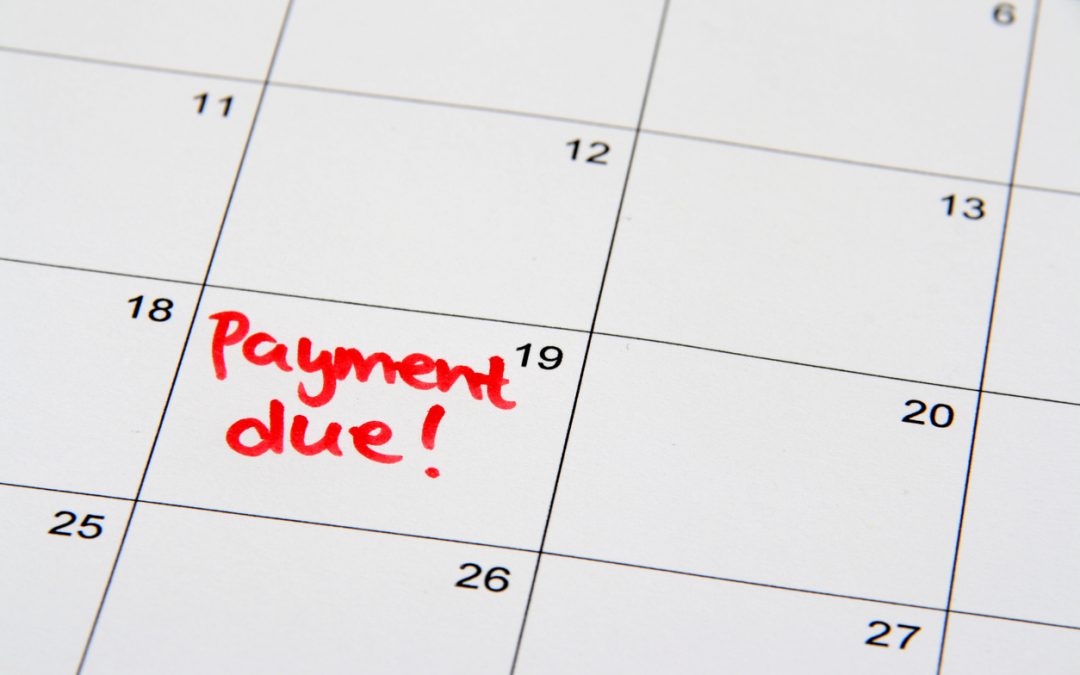Paying off credit card debt, much like refinancing credit card debt, requires a huge amount of self-discipline. You want to make sure you’re paying it off without creating more debt, increasing interest, and falling back into debt. So what mistakes should you avoid when paying off credit card debt?
1. Missing credit card payments
If you can, avoid this cardinal sin by at least making the minimum payment on your credit cards.
First, if you don’t make any payment within a minimum of 21 days after your billing cycle ends, your creditor will add a late fee to your next credit card statement. Late fee amounts depend on your credit card policies and whether it’s your first time making a late payment in six months.
Second, late and missed payments will damage your credit score. Credit card pay-off history makes up 35 percent of your score, so it comes as no surprise that this mistake can have a huge impact.
That said, you have a grace period of 30 days to make a late or missed payment and pay off the late fee on your credit card before your creditor reports a late or missed payment to the credit bureau.
2. Making only minimum payments
Sometimes, paying more than the minimum on your credit card statement seems all but impossible. The downside is that making only minimum payments means you’ll end up paying more later.
For instance, you’ll stay in debt longer. According to CNBC Make It, if you only pay your minimum — typically 1 percent of the balance and interest — you risk staying in debt for decades.
Furthermore, you’ll pay considerably more in interest, especially if your interest rate is in the double digits — which, most of the time, they are. You’ll pay thousands more over time if you don’t pay more than your minimum each month.
3. Opening another credit card account
Resist the temptation to open a new credit card account while you’re trying to pay off the balance of another. That’s a mistake.
Why? The more credit cards you have, the harder they are to manage, and the more overall debt you can potentially create.
You’ll also increase the number of debt payments to track, which raises the risk of missing payments or making the wrong payment on the wrong card. This results in more late fees, increased interest, and a damaged credit score.
4. Taking out cash advances on your credit card
You could use your credit card to essentially buy cash—but you still have to pay it back. Try to resist this convenient way to get quick cash. This mistake also encourages poor spending habits.
With this feature, you may have to pay multiple fees: cash advance fees (usually flat fees your creditor imposes), bank or ATM fees (fees your bank or the ATM owner impose), and sharply increased interest rates (rates that are usually much higher than rates imposed for card purchases).
5. Having no emergency fund
Why are emergency funds important? Because life tends to throw unwelcome costly emergencies at you (such as a broken HVAC system or hospital stay), and if you don’t have some money put away, you’ll have no choice but to pay for them with your credit card.
Having no emergency fund puts you at risk of falling further into debt, and this mistake could spoil your fun plans, too. If you unexpectedly have to replace the engine in your car, you can say goodbye to that vacation you’ve been saving up for.
The bottom line: Avoid these mistakes to pay off credit cards faster
Carrying a hefty balance can severely limit your financial freedoms. When paying off credit card debt, avoid these five mistakes and start living a much less stressful and more enjoyable life.




